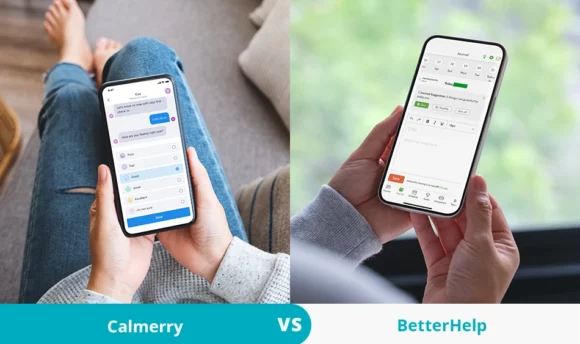Prozac for Anxiety: Here’s What You Need to Know
You might have heard about the use of Prozac to treat anxiety disorders, but how does this medication work? This article explains what Prozac is and its effects on treating anxiety disorders and anxiety symptoms. Is Prozac an effective anxiety treatment? Find out here.

Everyone suffers bouts of anxiety from time to time, but an anxiety disorder makes you feel anxious almost all the time. Severe anxiety can be a crippling, complex, and chronic condition that usually requires treatment. It can reduce your quality of life if left untreated.
The constant worrying and frequent sense of dread can be grueling to live with on a daily basis. It can impact your job, relationships, and profoundly affect your mental health. As a common mental health condition, many seek treatment to manage their anxiety symptoms.
Prozac is an approved medication for the treatment of major depression and other mental health disorders. Sometimes, people are prescribed Prozac to manage different anxiety disorders. So, how does this drug work, and is it safe and effective for people battling anxiety?
In this article, we discuss how Prozac works, the dosage, and possible side effects of Prozac.
Prozac for Anxiety: Is It Effective?
Prozac is not a cure for anxiety disorder, but it can help people manage their symptoms to cope better with the condition. It is a popular treatment option for those with anxiety disorders, including generalized anxiety disorder (GAD), social anxiety disorder (SAD), obsessive-compulsive disorder (OCD), panic disorder, and post-traumatic stress disorder (PTSD).
Clinical trials are still undergoing to test the effectiveness of Prozac for anxiety disorders. While it is an FDA-approved medication for certain mental disorders, it is not yet approved for all anxiety disorders. However, doctors will often prescribe Prozac off-label.
Prozac is often favored over other medications for anxiety disorders. It is widely considered a safe medication because, unlike many other medications, it is non-habit forming and has fewer side effects. It is generally suitable for long-term use in those with severe anxiety.
Prozac might be more effective for anxiety when paired with psychotherapy. Cognitive behavioral therapy (CBT) is categorized as the most beneficial form of psychotherapy for anxiety disorders. It focuses on teaching you coping skills to manage your emotions better.
How does Prozac work for anxiety?
Prozac belongs to a group of prescription drugs called selective serotonin reuptake inhibitors (SSRIs). These drugs work by increasing serotonin levels in the brain. Serotonin is a monoamine neurotransmitter that acts as a hormone and helps regulate mood, sleep, and hunger.
Serotonin is considered a happy hormone as it influences happiness, optimism, and satisfaction. In regulating serotonin levels, taking Prozac can help improve mood and ease anxiety symptoms. It can help anxious people relax, making living with anxiety disorder easier.
What Is Prozac?
Prozac is a brand name, among others, for fluoxetine. Fluoxetine is an antidepressant from the selective serotonin reuptake inhibitor class (SSRI). It was released in the 1980s as a treatment for clinical depression. It is now prescribed for a variety of mental health disorders.
Prozac is approved by the U.S. Food and Drug Administration (FDA) for treating major depressive disorder (MDD), obsessive-compulsive disorder, panic disorder, bulimia nervosa, premenstrual dysphoric disorder, bipolar disorder, and treatment-resistant depression.
Doctors commonly prescribe patients Prozac and other SSRIs as first-choice treatments for treating anxiety. Although non-FDA-approved for all anxiety disorders, it is a popular medication for generalized anxiety disorder, social anxiety disorder, and post-traumatic stress disorder, among other anxiety disorders.
Prozac dosage for anxiety
As anxiety disorder symptoms and severity differ between individuals, Prozac dosage can vary. The amount also depends on general factors, such as your age and health status. Most anxiety medications are prescribed at a low dose initially before gradually increasing.
The usual dose for effective use in adults is 20mg per day, with no more than 80mg. It is only available as an oral medication in capsule, tablet, or liquid form. Some people may require only 10 mg daily to minimize the risk of side effects of Prozac.
The starting dose in children and adolescents for the treatment of childhood anxiety disorders is usually 10mg daily. Again, the recommendation may gradually increase with time. More research is necessary to determine the length of treatment to achieve anxiety remission.
Drug interactions
You also need to consider drug interactions. Prozac can interact with other prescription and non-prescription drugs. Always ensure your doctor is fully aware of any medication you are taking to mitigate dangerous interactions and severe side effects.
The following drugs are among those that you should not use alongside Prozac:
- Monoamine oxidase inhibitors (MAOIs)
- Thioridazine
- Olanzapine
- Pimozide
- Other antidepressants and SSRIs
- Benzodiazepines
- Opioids
- Non-steroidal anti-inflammatory drugs (NSAIDs), including aspirin and ibuprofen
Combining Prozac with another SSRI poses the risk of developing serotonin syndrome – a potentially life-threatening condition that occurs when you have too much serotonin in your body. Again, make sure your doctor is aware of all other medications to prevent serotonin syndrome.
Prozac can take a few weeks to show results. You should never use this medication without medical supervision. It is also crucial that you don’t stop taking Prozac abruptly, as withdrawal symptoms may occur. Always discuss any alterations or concerns with your doctor.
What Does Prozac Do?
Taking Prozac improves your mood and ultimately helps you feel better overall. While it will not alter your personality, it can help you feel more calm, relaxed, and less worried in your day-to-day life. It does this by changing certain hormonal levels in your brain.
How Does Prozac Work?
Prozac and other SSRIs help elevate mood, improve sleep, and regulate emotions by increasing serotonin levels in your brain. Serotonin is a neurotransmitter that carries signals between the brain’s nerve cells. Usually, serotonin delivers its message and is then reabsorbed by the brain.
Taking Prozac or another SSRI blocks the reabsorption of serotonin into the brain cells as usual. That means you have more serotonin readily available to help regulate your mood. The effects of Prozac make it a beneficial medication for easing anxiety and depression symptoms.
Can Teenagers Be Treated With Prozac?
Yes, teenagers can use Prozac as a treatment option for various mental health conditions under medical supervision. Prozac is one of several antidepressant medications approved to treat depression and obsessive-compulsive disorder in pediatric patients over the age of 8.
Selective serotonin reuptake inhibitors are generally the first prescription medications given to children and teenagers with depression. These drugs tend to have fewer adverse effects than other antidepressant medications, such as tricyclic antidepressants and MAO inhibitors.
The use of Prozac and other antidepressants in children and teenagers must be closely monitored for safety reasons. Although rare, antidepressants may cause an increased risk of suicidal thoughts and behavior in a small number of children, teens, and young adults under 25.
Still, antidepressants can be effective options for several mood disorders. Your child must have a complete mental health evaluation before beginning any antidepressant treatment. Then, you and your child’s doctor can carefully weigh the pros and cons before deciding.
What does Prozac feel like when it starts working?
It can take a few weeks, but those taking Prozac will soon begin to feel less anxious and more relaxed. You might feel less tired and restless and more awake and energetic. Some people notice better concentration levels when focusing on daily activities and tasks.
Some people taking Prozac have mild or no side effects at all. However, some people experience some adverse side effects in the early days. Physical symptoms include drowsiness, tiredness, fatigue, trouble sleeping, nausea, diarrhea, and other gastrointestinal problems.
Often, side effects are temporary and subside as your body adapts to the medication. Like other antidepressants, there are some warnings. Prozac may trigger an allergic reaction in some people. Seek help immediately if you experience shortness of breath, hives, or skin rash.
Does Prozac Give You Energy?
As the effects of Prozac begin to take hold, you may notice an increase in your energy levels. Fatigue is among the common symptoms of anxiety disorder, panic disorder, and other anxiety-related disorders. Prozac can reduce fatigue by boosting your mood and energy levels.
Furthermore, Prozac can also improve sleep. With a healthier sleep pattern, you are more likely to feel energetic. However, Prozac is considered a stimulating SSRI. It means that while giving you more energy, it may impair sleep, increase irritability, and induce mania symptoms.
Can Prozac Make Anxiety Worse?
Most people with anxiety-related conditions, like panic disorder and social anxiety disorder, will find Prozac effective. It is a popular prescription drug because it has numerous benefits for reducing anxiety. It can help those battling with anxious thoughts lead a more fulfilling life.
Of course, not everyone will get the same results from medication. On some occasions, Prozac can cause side effects, including increased anxiety, nervousness, and suicidal thoughts. This might occur in the first few days or weeks of using Prozac and may subside with continued use.
Other negative side effects may include insomnia, weight gain, and weight loss. Some people decide to quit Prozac if their anxiety worsens, but you should always discuss this with your doctor. You can also discuss any concerns that you think might be related to this drug.
In the case of a mental health emergency – seek immediate help by calling 911. You can call a crisis hotline if you are experiencing increased anxiety, paranoid thoughts, or suicidal thinking and behavior. It’s also a good idea to talk to a friend or family member if you are struggling.
A Word From a Psychologist
Anxiety is a normal emotion, but excessive anxiety can be a crippling condition. You might worry all the time, experience racing and intrusive thoughts, and have difficulty concentrating on everyday tasks. It can have a profound impact on your overall quality of life.
Medications like Prozac increase serotonin levels in the brain to promote a better mood. They can mitigate anxious thoughts and help you feel generally calmer and more relaxed. These drugs are prescription only and should only be used under medical supervision.
Safety is of utmost importance when using any type of medicine. Safety rules apply even when you decide to come off a particular drug. Stopping Prozac suddenly can cause withdrawal symptoms, including anxiety, mood changes, irritability, and excessive sweating.
Studies show that the best treatment for anxiety disorders is psychological therapy, pharmacotherapy, or a combination. Aside from Prozac, there are many medications that might help you. Therapy-wise, CBT therapy is considered among the best treatments.
Dealing with anxiety disorder alone is challenging. You might want to engage in self-destructive behavior to escape the constant fear and worrying. However, drinking alcohol, taking recreational drugs, and partaking in other harmful behaviors will only worsen anxiety.
It’s better to manage your mental health with more productive means. Taking care of your physical health is a good place to start. Try eating a healthy diet and maintaining an exercise regimen. You could go running in the morning or work out twice a week at your local gym.
Talk to a healthcare professional if your anxiety is becoming unmanageable. The sooner you seek treatment, the sooner you can return to feeling like yourself again.
Conclusion
Prozac is a renowned antidepressant for supporting those with depression and panic disorders. However, it is also well-recognized as an off-label prescription for multiple anxiety-based conditions. Keep in mind that the FDA does not yet approve it for general and social anxiety.
Have a conversation with your doctor about the advantages and risks of Prozac for anxiety to make an informed decision. In the meantime, you can practice self-care to help control your symptoms naturally. You can go for morning walks, prioritize sleep, eat well, and try journaling.

















































 Select your language:
Select your language: 








